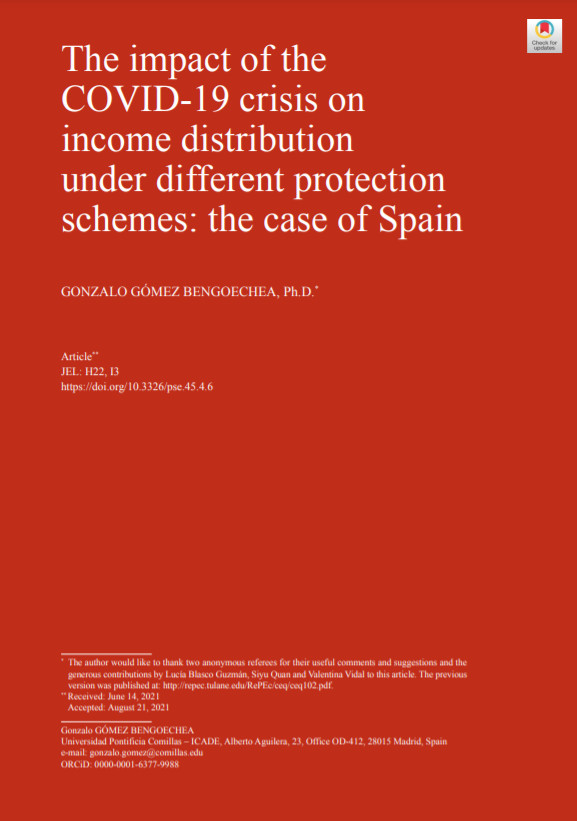The impact of the COVID-19 crisis on income distribution under different protection schemes: the case of Spain
DOI:
https://doi.org/10.3326/pse.45.4.6Keywords:
fiscal incidence, inequality, poverty, social spending, COVID, SpainAbstract
I use household survey data to microsimulate the impact of the COVID-19 crisis on income distribution in Spain. I estimate the cost of potential lockdowns under three different low-income public protection schemes. Results show that although the COVID-19 shock has reduced income for all deciles of the income distribution, the losses are not uniformly distributed. The worst economic effects of the pandemic are not on the poorest, but on individuals in the middle and wealthy groups of the ex-ante income distribution. Low-income benefits help to moderate income losses and to curb poverty and inequality at various levels. It might be necessary to raise taxes and to resort to expenditure reducing policies to maintain protection in the context of contraction and lower government revenues.
Downloads
Published
2022-01-28
How to Cite
Gómez Bengoechea, G. (2022). The impact of the COVID-19 crisis on income distribution under different protection schemes: the case of Spain. Public Sector Economics - Submission Site, 45(4), 517–541. https://doi.org/10.3326/pse.45.4.6
Issue
Section
Articles
License
Copyright (c) 2021 Gonzalo Gómez Bengoechea

This work is licensed under a Creative Commons Attribution-NonCommercial 4.0 International License.
If accepted for publication, the authors will be asked to sign a Licence to Publish. Authors retain the copyright on the papers published in PSE but grant the right of publication to the journal.
Authors must obtain the right to use copyright material (e.g. maps, drawings, literary quotes, lyrics) from its owner before publishing the paper in PSE.
PSE is an Open Access Journal licensed under the Creative Commons Attribution-Non/Commercial 4.0 International License, which permits non-commercial use and redistribution, as long as the licensed work is passed along unchanged and in whole, with credit to PSE as its original publisher.
The authors can make the results of their accepted papers available before they are published in PSE on preprint platforms, blogs, and other informal communication channels by providing a link to the PSE website and noting that the manuscript will be published in PSE.
For complete information on copyright, please see Ethical guidelines for publication in PSE








